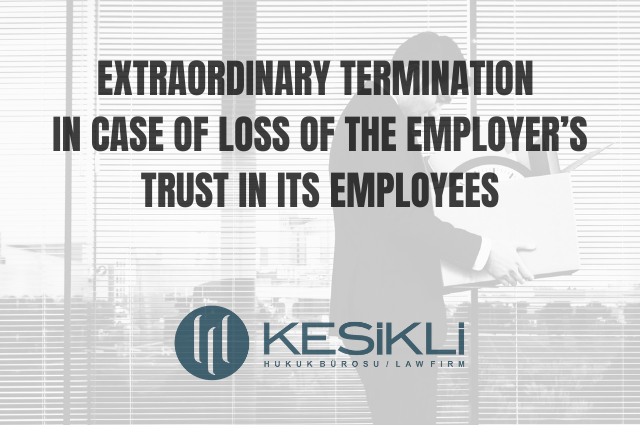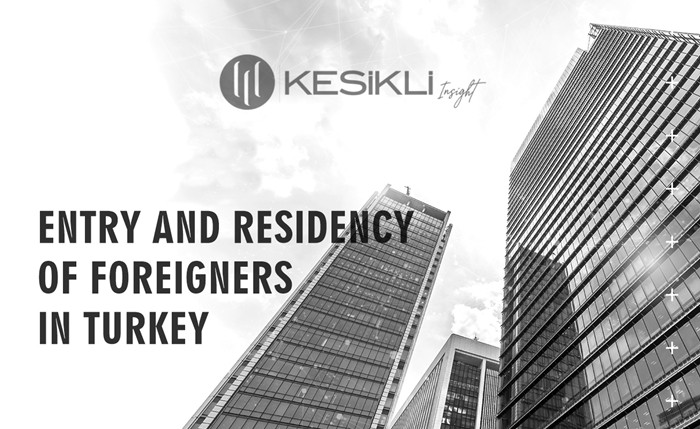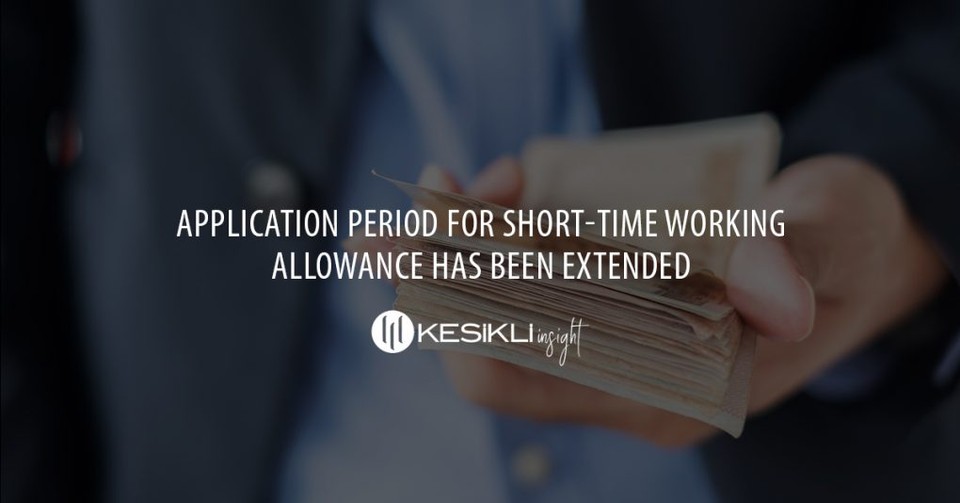The fundamental rights and freedoms of foreigners can be subject to restrictionsaccording to article 16 of the Constitution of Republic of Turkiye. The relevant provision reads as follows: “The fundamental rights and freedoms in respect to foreigners may be restricted by law compatible with international law.” Obviously, all regulations regarding any restriction shall be based upon a “law” and shall not violate international law standards on the foreigners’ fundamental rights and freedoms. In that regard, the fundamentals on procedure and principles of foreign work permits are regulated under Act on International Labour Force (Uluslararası İşgücü Kanunu) No. 6735 dated 28 July 2016 (OG: 13.08.2016/29800).
As a general rule, foreigners who are willing to work in Turkey should have a foreign work permit. A foreign work permit application in Turkey shall be made directly to the Ministry of Labor and Social Security (Ministry-Çalışma ve Sosyal Güvenlik Bakanlığı). Applications may also be filed abroad to the embassies or consulate generals of the Republic of Turkiye in the foreigner's country of citizenship or legal residence. , Those application will be transferred to the Ministry by embassies or consulate generals. However, foreign work permit applications can also be made by authorized intermediaries, institutions or organizations whose qualifications and activities are legally regulated and authorized by the Ministry.
A foreigner having a foreign work permit does not need any other document to be able to reside in Turkeysince the Law on Foreigners and International Protection No. 6458 (Yabancılar ve Uluslararası Koruma Kanunu- OG: 11.04.2013) stipulates that the valid work permit as well as the document confirming foreign work permit exemption issued pursuant to art. 13 of the Act on International Labour (AIL), shall be considered as a residence permit. However, it is worthwhile to note that a foreigner who is granted foreign work permit upon his/her application abroad must enter Turkey within six months after the commencement of the foreign work permit's validity period. Otherwise, the work permit shall be cancelled according to art. 12/2 of AIL.
The Ministry and General Directorate of International Labour Force (Uluslararası İşgücü Genel Müdürlüğü) are authorized to execute the provisions of AIL. The Ministry, taking into account the decisions made by International Workforce Policy Advisory Board, is competent for determining the policy related to international labour and engaging in activities at national and international level intended to carry out these international labour policies. In accordance with art. 4/2 AIL, the mobility of the work force and regional developments as well as decisions of Migration Policies Board, the developments related to employment and business life, periodic sectoral and economic changes, development plans and programs, bilateral economic social and cultural relations as regard to foreigner's country of citizenship, international bilateral or multilateral agreements and conventions to which Turkiye is party, public order, public security and public health shall be considered as significant for the determination of international labour policies.
The foreign work permits under Turkish law are mainly classified in two categories: Permits for work under an employment contractand independent work permits. The former is envisaged for an employment or service under the control of an employer. The ordinary work permit, regulated under AIL is the one-year work permit (süreli çalışma izni). Article 10/1 states that “In case of favourable assessment of application, foreigners will be granted upmost one year work permit on their first application provided that permit's duration is not exceeding their employment or service contract periods, and that they are employed for a certain job in a certain workplace owned by real person or legal entity, or public institution and public enterprise, or in the workplaces belong to these employers in the same sector.”
Thus, if the employment has been concluded for a shorter period, for instance, for six months, then the time limit of the work permit can not exceed six months. Moreover, if there is not any exceptional ground specified under article 16, for the first application, the maximum period of the work permit will be one year. However, if the foreigner will continue to work for the same employer, he or she will be given upmost two years extension on the first application and maximum three years for the ensuing applications. Conversely, applications lodged for employment under different employer shall be assessed as a first application for work permit under art. 10 and the validity period of the permit will be one year in that case.
The second alternative of work permits related to an employementcontract is the “permanent work permit” (süresiz çalışma izni). According to art. 10/3 AIL, foreigners holding long-term residence permits (see art. 42 ff. of the Law on Foreigners and International Protection) or minimum eight years of legal work permit may apply for permanent work permit. However, having the requirements for application shall not confer an absolute right for foreigners. Foreigners holding permanent work permits shall benefit from the same rights as long-term residence permit holders. In that regard, without prejudice to acquired rights with respect to social security, and provided that they are subject to conditions set forth in applicable legislation in the enjoyment of these rights, holders of permanent work permit shall benefit from the same rights as accorded to Turkish citizens with the exception of the provisions in laws regulating specific areas. Those foreigners have no right to elect and be elected or to enter public service. And they have no obligation of compulsory military service.
On the other hand, partners and associates of companies that are established under Turkish Commercial Code No. 6102 of 13 January 2011 may work by obtaining a work permit. In this context, managing partner of limited liability companies, associates of joint - stock companies who are also member to board of directors and managing partners of partnership in commendam with a capital divided into shares shall apply for a work permit. Conversely, an important exemption is regulated under art. 13/7 AIL. Pursuant to this provision, foreign non-resident board member of joint-stock companies that are founded pursuant to Law No. 6102, non-executive partners of other companies, and cross-border service provider whose domestic activities (conducted in Turkiye) not exceeding ninety days within the period of hundred and eighty days will be considered within the scope of work permit exemption. Consequently, the role and working mode of the partner or shareholder is important for determining whether he/she will be subject to work permit. If there is an employment contract betweenthe company and its shareholder, the foreign shareholder will be liable for obtaining a one-year work permit. However, art. 16 AIL provides some exemptions that must keep in mind.
Another work permit which is envisaged for independent working activities is prescribed in art. 10/6-8 AIL. Due to their professional activities, foreigners who will act out of the control of an employer might be granted “independent work permit” (bağımsız çalışma izni). In this context, an architect, designer or accountant or therapist who wants to work freelance will able obtain an independent work permit.
In the assessment of independent work permit application with respect to international labour policies, foreigners' educational level, professional experience, contribution to science and technology, effect in-country activities or investments on Turkey's economy and employment, and in case of being foreign company partner the share of capital and other issues determined by Ministry in line with the suggestions of International Workforce Policy Advisory Board shall be taken into consideration. Independent working permit shall be arranged for defined period of time without being subject to period restrictions as prescribed for the application and extension of one-year work permit. Thus, the independent work permit may be granted for three years, for instance, at first application and may be extended for three years if it’s deemed appropriate.
For all kind of work permits, it is worth to underline that a preliminary permission is compulsory on the assessment of work permit applications of foreigners seeking to work in healthcare and educational services that require professional competence (art. 8). The preliminary permission for professionals of healthcare services shall be granted by Ministry of Health, and for professionals of educational services shall be granted by Ministry of National Education. Moreover, occupations that preliminary permission is required shall be determined by the Ministry upon taking the opinions of the Ministry of Health and the Ministry of National Education.
Finally, according to art. 16 AIL, the following foreigners are subject to some exceptions in order to obtain a work permit. Those who are
- assessed as qualified workforce due to their educational level, wage, professional experience, contribution to science and technology and such like qualifications,
- assessed as qualified investor due to their contribution to science and technology, their level of investment or export value, volume of employment they provide and such like qualifications,
- employed by his/her employer for a certain period in a project which is being realized in Turkey,
- declared by Ministry of Interior or Ministry of Foreign Affairs as of Turkish origin,
- citizens of Turkish Republic of Northern Cyprus,
- citizens of the countries that are member of the European Union,
- in the scope of Law No. 6458; applicants of international protection claim, conditional refugees, persons under temporary protection and stateless persons, victims of human trafficking supported by the victim’s assistance process,
- married with a Turkish citizen and live in Turkey with their spouse with marriage bond,
- employed in foreign missions without diplomatic inviolability,
- internationally reputed for their successes in their field and come to Turkey for scientific, cultural and sportive purposes,
- cross-border service providers may be exempted from the implementation of the restrictions. In that regard, by taking into account the specific necessities and/or exigence, some restrictions regarding the time limit or the preliminary permission may not apply to foreigners who are specified in art. 16 AIL.
@Av. Ömer KESİKLİ
Let's Get Connected!



